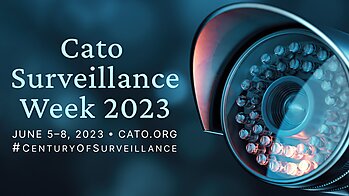The Pernicious Surveillance Legacy of 9/11
Join the conversation on X using #CenturyofSurveillance. Follow @CatoInstitute on X to get future event updates, live streams, and videos from the Cato Institute.
Featuring



Al Qaeda’s attacks on the United States plunged America into multiple military campaigns abroad in pursuit of the attackers. It also ushered in new surveillance programs before any investigations into the causes of the 9/11 intelligence failure had even begun. The first new, secret mass electronic surveillance program authorized by then president George W. Bush, Stellar Wind, was initiated just days after the attacks and with no judicial notification, much less review, as required by the Foreign Intelligence Surveillance Act (FISA). In a parallel public track, the Bush administration pushed for and received even more sweeping surveillance authorities via the congressionally approved Patriot Act. By the end of the Bush presidency, the FBI had been granted vast new domestic surveillance powers, gaining authority to open investigations on individuals or groups without needing a criminal basis to do so.
The Obama era was marked not by reevaluations of these programs but instead by their continuity and political normalization. The Stellar Wind program was made nominally lawful through the passage of the FISA Amendments Act of 2008. And after National Security Agency contractor-turned-whistleblower Edward Snowden revealed in 2013 secret mass surveillance of Americans’ phone calls under Section 215 of the Patriot Act, Congress passed the USA Freedom Act ostensibly to partially curtail that program. Yet subsequent oversight actions and investigations would find that neither the Stellar Wind program nor the Section 215 telephone metadata surveillance program had stopped a single attack on the United States, all the while accumulating vast reams of information on innocent Americans.
Have officials in the executive branch and Congress learned anything from these mistakes and overreaches? How many other surveillance programs and authorities that potentially threaten the privacy and even constitutional rights of Americans have yet to be subjected to meaningful oversight? Our panel will explore these and related issues
This event is part of the 2023 Cato Surveillance Week series:
Session 1 • June 5, 2023
The Pernicious Surveillance Legacy of 9/11
Have officials in the executive branch and Congress learned anything from surveillance mistakes and overreaches?
Session 2 • June 6, 2023
Surveillance Reform Prospects
What do we actually know about the alleged effectiveness of the controversial FISA Section 702 electronic mass surveillance program?
Session 3 • June 7, 2023
Domestic Terrorism versus Constitutional Speech
Extreme political views and speech have been a feature of American political and social life virtually since the founding of the republic.
Session 4 • June 8, 2023
Biometrics: Privacy versus Public Safety
The explosion in the use of facial recognition and other biometric technologies by government and private‐sector entities has sparked a national debate about such systems.

This work is licensed under a Creative Commons Attribution-NonCommercial-ShareAlike 4.0 International License.

